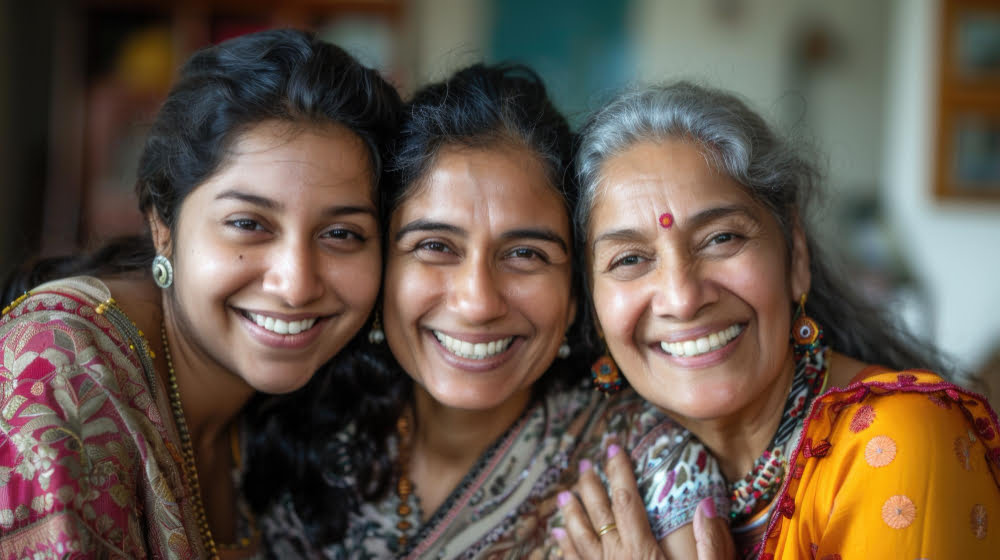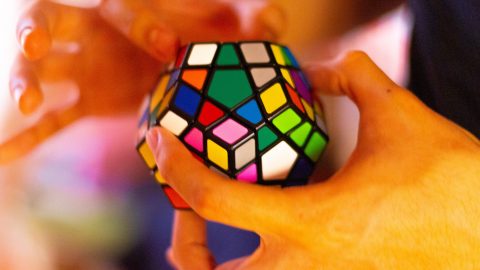Dementia—just hearing the word can bring up feelings of fear, confusion, and sadness. But within this difficult topic, there’s also a story of shared experiences that connect us across generations. Dementia and generations from the Baby Boomers, who first faced dementia with little understanding, to Millennials, who have used the power of the internet to change how we talk about it, and now to Gen Z, who are ready to lead the way into a future of new ideas and hope—dementia has deeply touched our lives.
This article isn’t just about how dementia has progressed over time; it’s about each generation’s journey. Whether you’re caring for a loved one, supporting a friend, or simply trying to understand more, we’ll explore how Boomers, Millennials, and Gen Z have dealt with dementia and what we can all learn from their experiences.
Boomers: From Silent Struggles to advocacy
If you’re a Baby Boomer, you might recall a time when dementia was a whispered word. In the 1950s and 1960s, it was often misunderstood and dismissed as “senility,” a normal part of ageing. But as society’s understanding evolved, so did yours. For many Boomers, dementia became personal as your parents began showing signs of cognitive decline.
In the 1970s and 1980s, things began to shift. Alzheimer’s disease was increasingly recognised as a distinct medical condition, thanks to growing research and awareness campaigns. Caring for a parent during this time often meant navigating uncharted territory, with limited resources and widespread stigma. But a turning point came with the establishment of the Alzheimer’s Association in the 1980s. This organisation offered a lifeline, providing information, advocacy, and hope. Public health campaigns slowly chipped away at the stigma surrounding dementia.
As you aged, many of you stepped into caregiving roles. Watching loved ones lose their memories and sense of self was deeply painful. Yet, Boomers didn’t just stand by—they acted. Many joined support groups, shared their stories, and participated in clinical trials. Your efforts have been instrumental in advancing research, raising awareness, and improving care for those with dementia.
Boomers’ advocacy has left a lasting legacy of compassion and determination, paving the way for future generations.
A Tip from the Boomers’ Playbook: If Dementia has touched your family, don’t wait to seek out resources. Early involvement in support groups, whether online or in person, can give you the knowledge.
Dementia and Generations
Boomers: Raise Awareness, Destigmatize, and Take Control
As Baby Boomers, you have the power to reshape the conversation around dementia. Here’s how you can make a difference:
- Raise Awareness: Speak openly about your experiences with dementia. By sharing your story, you can help break down the stigma surrounding the condition.
- Destigmatise the Condition: Challenge outdated beliefs by educating others about the realities of dementia. This can be done through community talks, social media, or even just conversations with friends and family. The more people understand, the less fear and shame there will be.
- Take Control: If dementia has touched your life, take proactive steps to manage the journey ahead. This includes seeking early diagnosis, getting involved in support groups, and planning for the future— legally and financially. By taking control, you can better navigate the challenges and ensure you and your loved ones have the support you need.

Millennials: Navigating Dementia in the Digital Age
Millennials, your generation is known for growing up alongside the internet, and that has significantly influenced how you’ve dealt with dementia. When dementia touched your life—whether through a grandparent, parent, or your – health concerns—the first place you likely turned was the web. In the 1990s and 2000s, information that was once difficult to find became readily available, making it easier to understand what was happening and what steps to take next.
The rise of social media in the 2000s further revolutionised the conversation around dementia. Suddenly, personal stories, fundraising campaigns, and awareness videos were being shared widely, breaking down the barriers of silence that had surrounded the condition for so long. Millennials have used these platforms not just to learn but to educate others, raise awareness, and advocate for better care and research.
Many of you are part of the “sandwich generation,” caring for children and ageing parents. This dual responsibility can be overwhelming but has also made you resilient and resourceful. You’ve turned to digital tools and online communities for support, finding innovative ways to balance your roles. Your willingness to share your experiences publicly has helped countless others navigate their challenges with dementia, creating a ripple effect of knowledge and empathy.
A Lesson from the Millennials’ Experience: Embrace technology as a tool for caregiving. From apps that track symptoms to online support networks, these resources can help you manage the demands of caregiving while staying connected and informed.
Dementia and generations
Millennials: Embrace Healthy Ageing
As Millennials, you’re at a stage where you can start taking steps to protect your cognitive health for the future. Here’s how:
- Focus on Healthy Living: Adopt a lifestyle that promotes brain health. This includes regular physical exercise, a balanced diet rich in fruits, vegetables, and omega-3 fatty acids, and staying mentally active through reading, puzzles, or learning new skills.
- Manage Stress: Chronic stress can have adverse effects on your brain. Practice stress management techniques such as meditation, yoga, or simply taking time out to relax and recharge.
- Stay Connected: Social connections are vital for brain health. Maintain relationships with friends and family, and engage in community activities that keep you socially active and mentally stimulated.
Dementia and generations
Gen Z: Leading the Charge into a New Era of Dementia Care
Gen Z, you’re the first generation to grow up in a world where dementia is openly discussed and widely understood. Whether through school education, media, or family conversations, you’ve been exposed to the realities of this condition from a young age. This early awareness, coupled with your tech-savviness and passion for mental health, positions you to be the generation that drives innovation in dementia care.
For you, the conversation around dementia is not just about managing the condition, but about preventing it and improving the quality of life for those affected. Technological advancements have made it possible to detect dementia earlier and manage it more effectively. You’re at the forefront of using AI tools for early diagnosis and brain health apps to promote cognitive wellness. Your generation’s focus on mental health, self-care, and well-being is also crucial in the fight against dementia.
With your unique perspective, you have the potential to make a real difference in how dementia is understood and managed. You’re likely to drive future research, advocate for policy changes, and develop new technologies to support those affected by dementia. The future of dementia care is in your hands, and it’s looking brighter because of your passion and innovation.
A Call to Action for Gen Z: Get involved early. Your contributions can shape the future of dementia care through volunteering, advocacy, or research. Use your technological skills to stay informed and make the most of the tools available to you.
Dementia and generations
Gen Z: Spread Awareness and Get Involved
As Gen Z, you’re uniquely positioned to drive the future of dementia care and awareness. Here’s what you can do:
- Spread Awareness: Use your digital savvy to spread accurate information about dementia. Whether through social media campaigns, blogs, or school projects, you can educate your peers and broader communities about the realities of the condition.
- Volunteer and Advocate: Get involved with organisations that support dementia research and care. Volunteering at a local care facility, participating in fundraising events, or advocating for dementia-friendly policies can make a significant impact.
- Help Those Affected: Offer your time and skills to help those in your community affected by dementia. Whether it’s spending time with someone with dementia, helping them navigate technology, or supporting their caregivers, your involvement can make a real difference in their lives.

The Legacy of Dementia: A Collective Story Across Generations
Dementia has touched the lives of every generation, from the Boomers who first navigated its mysteries to the Gen Z-ers who are using technology to find new solutions. Each generation has faced unique challenges, yet they’ve all contributed to the growing understanding and care of dementia. Boomers fought to bring the issue to light, Millennials expanded the conversation into the digital realm, and Gen Z is poised to lead the next wave of innovation.
We must continue learning from each other as we look to the future. The story of dementia is not just one of loss, but one of resilience, innovation, and hope. By sharing our experiences and supporting one another, we can continue to make strides in dementia care, ensuring that future generations have the tools and knowledge they need to navigate this journey with compassion and confidence.
Final Thought: Regardless of your generation, you can play a role in the ongoing fight against dementia. Whether you advocate for research, provide care, or simply be there for a loved one, your actions can make a difference. Start by taking a cognitive health check-up to better understand your brain health and take proactive steps. Let’s continue to learn from each other, support each other, and work together to build a future where dementia is better understood, managed, and ultimately defeated.




